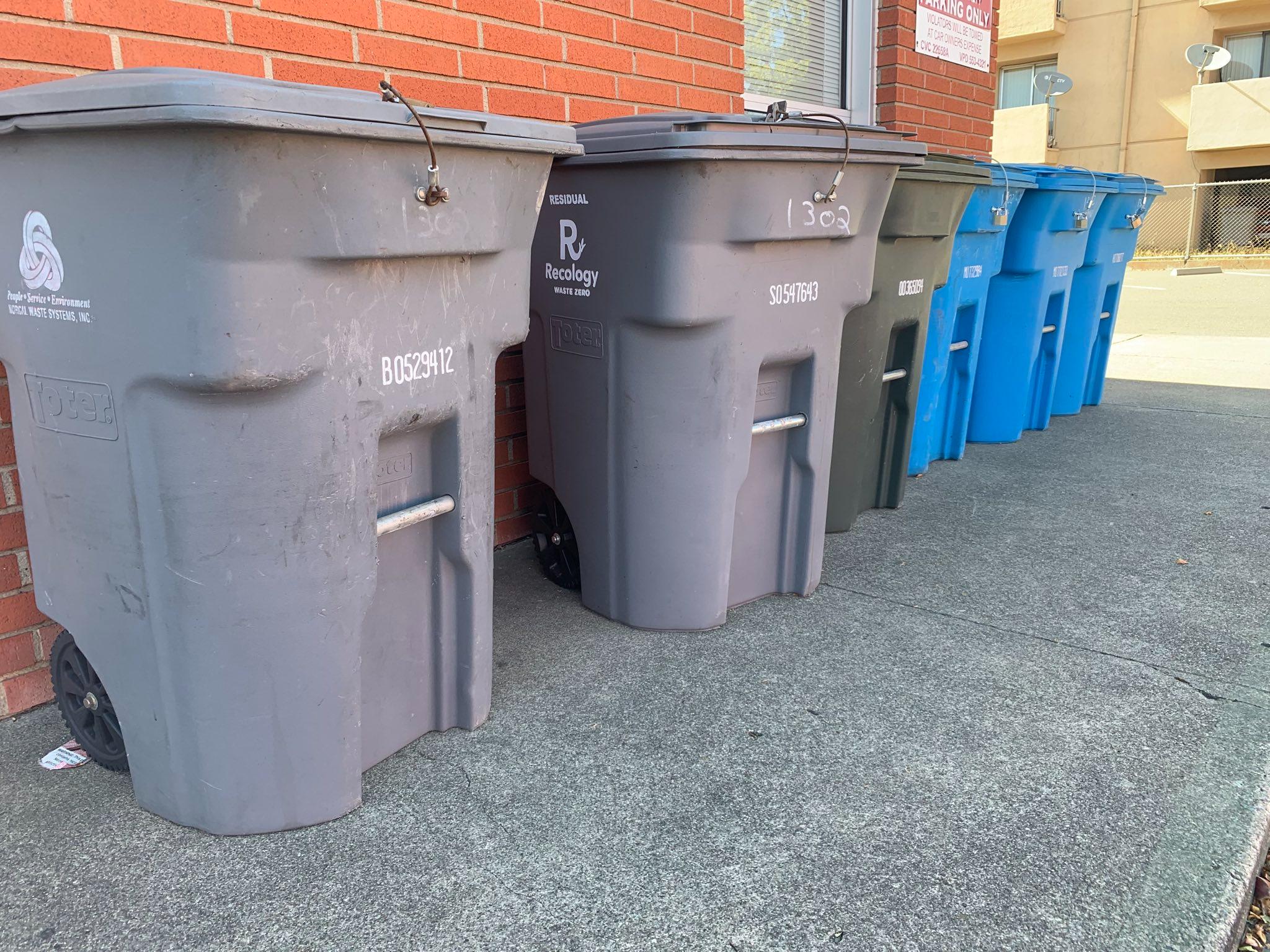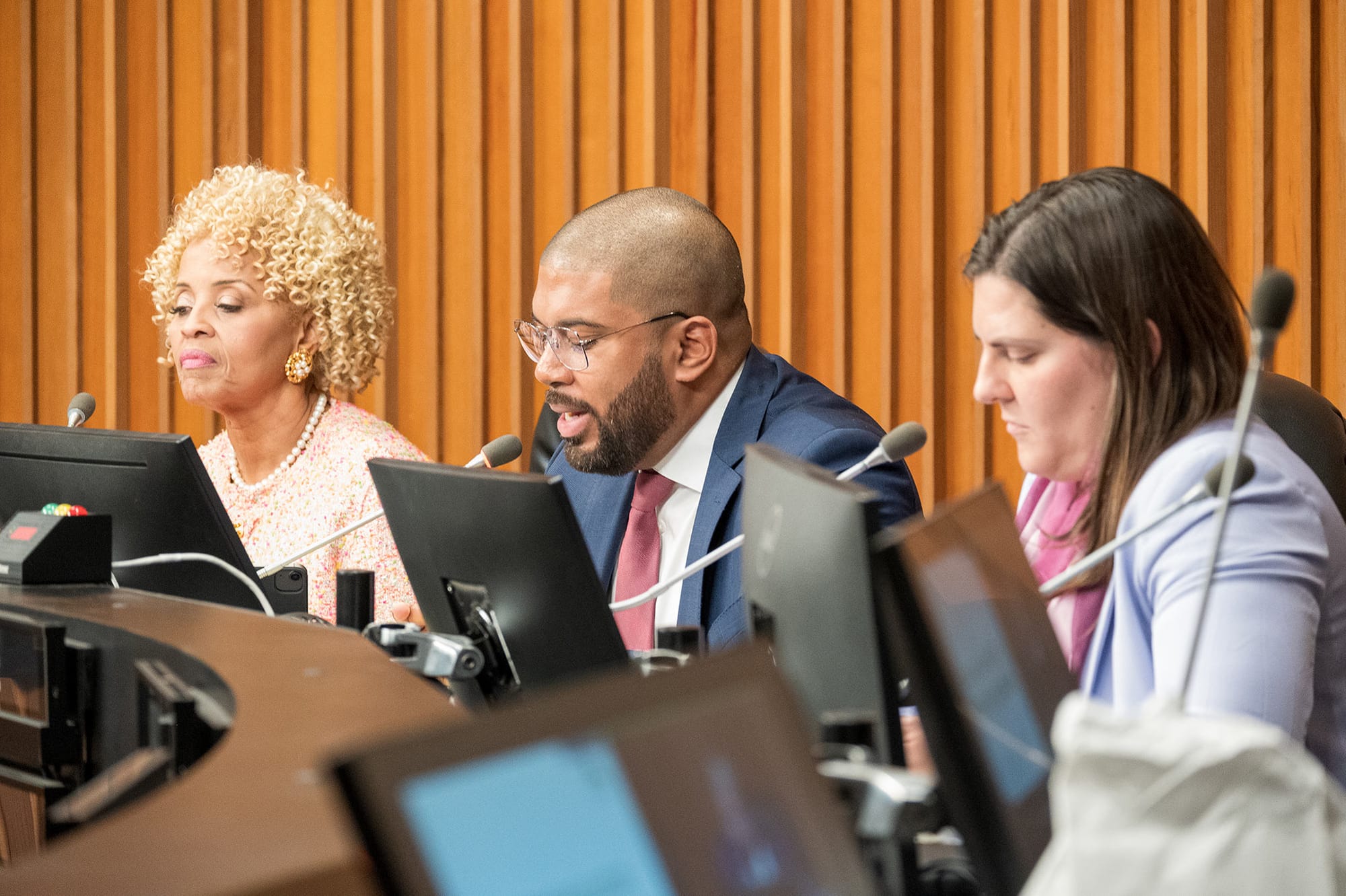VALLEJO – Vallejo residents may have to pay more for garbage services starting in July to comply with new organic waste regulations for residential and commercial customers under a new state law.
The new proposed rates are $41.57 per month for residential customers, which is an additional $3.24 per month for use of a 32-gallon trash can. Similarly, a 64-gallon garbage can will cost customers $67.45 per month, which is an increase of $5.26. Finally, customers would pay an additional $7.27 per month – or $93.32 yearly – for use of the 96-gallon trash can.
To raise rates, the city must go through the Prop. 218 process, which gives property owners and customers of record 45 days to submit a written objection protesting the proposed rate increase. Written protests will be received up to and during a June 21 public hearing in which the no votes will be counted. Should 50% plus 1 of residential customers submit valid written protests, then the rate will not be implemented.
California Senate Bill 1383 — signed into law in September 2016 — requires municipalities to implement organic recycling by diverting organic waste from landfills. Using 2014 levels, municipalities must implement programs to help the state reduce the amount of organic waste disposal by 75% by 2025 or risk being served with administrative civil penalties per violation.
Organic waste includes food scraps, coffee grounds, tea bags, egg and food-spoiled paper products like paper cartons, pizza boxes, coffee filters and to-go bags and boxes. Green waste and lumber are also considered organic waste.
Customers will be able to put food, green and food-soiled paper in one organic waste container starting in July.
Derek Crutchfield, the city's acting environmental services manager, said the rate increase is being proposed because Recology Vallejo, the city's franchise waste hauler "will need to make significant operational and programmatic changes" to comply with the new law.
The proposed rate increase comes after a similar rate increase by the Vallejo Flood & Wastewater District was rejected by property owners in April. District officials planned to use the increase in stormwater fees to provide flood protection, remove trash from local creeks.
Crutchfield said early indications show the garbage increase will pass.
"According to the data and feedback we have acquired so far, it looks as though the rate increase may pass; however, this data can shift between now and June 21, 2022, when the time for response for opposition closes," he said.
The city has scheduled several community meetings to discuss the new proposed rates:
- June 2, 6 to 7 p.m., Zoom Meeting (Meeting ID: 892 8288 5363 & Passcode: 265691)
- June 6, 6 to 7 p.m., Hidden Brook Golf Club (Garden Room), 1095 Hiddenbrooke Parkway.
- June 9, 6 to 7 p.m., Zoom Meeting (Meeting ID: 827 5567 6226 & Passcode: 542266)
- June 13, 6 to 7 p.m., Glen Cove Marina, 2000 Glencove Marina Road.
- June 16, 6 to 7 p.m., Navy Elks Club, 1020 Alabama St.
Property owners and customers of record wishing to protest the garbage rate increase must submit a written protest, which includes the customer name, signature, service address, and a statement that the person is protesting the proposed rate increase.
The public hearing is scheduled for 7 p.m. June 21, inside the Vallejo City Hall Council Chambers, 555 Santa Clara St.
Editor's note: This article was updated on June 2 to clarify the language about the 75% threshold the state is required to meet by 2025.
Before you go...
It’s expensive to produce the kind of high-quality journalism we do at the Vallejo Sun. And we rely on reader support so we can keep publishing.
If you enjoy our regular beat reporting, in-depth investigations, and deep-dive podcast episodes, chip in so we can keep doing this work and bringing you the journalism you rely on.
Click here to become a sustaining member of our newsroom.
THE VALLEJO SUN NEWSLETTER
Investigative reporting, regular updates, events and more

John Glidden
John Glidden worked as a journalist covering the city of Vallejo for more than 10 years. He left journalism in 2023 and currently works in the office of Solano County Supervisor Monica Brown.
follow me :




